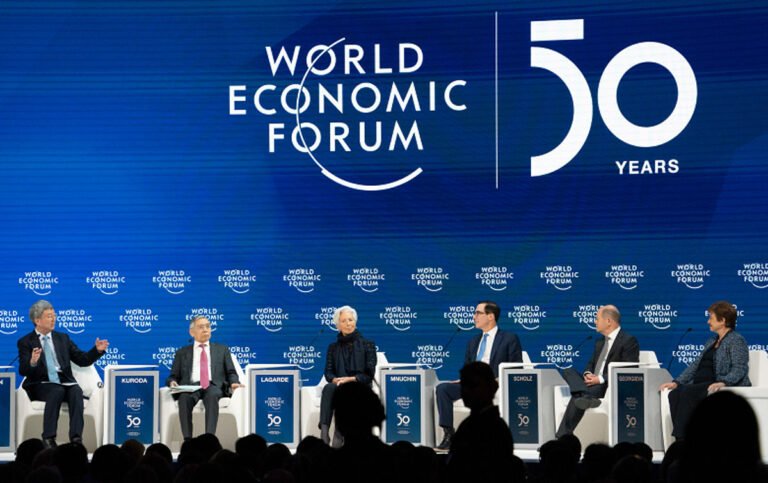People forgot how humans look like because of social media — and here’s how to get out of that
There’s a quiet but unsettling shift happening in how we perceive people. Social media, once a way to connect, has distorted our expectations of what humans actually look like.
The constant exposure to edited images, hyper-stylized aesthetics, and AI-generated perfection has altered our standards to the point where real, unfiltered faces can feel jarring. If you’ve ever caught yourself thinking a normal, unedited photo looks “off” or found it hard to appreciate your own reflection without a filter, you’re not alone.
For years, we’ve been bombarded with impossibly smooth skin, symmetrical features, and exaggerated expressions. Face filters, Facetune, and even AI-generated influencers have created a new visual language—one that doesn’t actually exist in reality.
The result? People are beginning to experience a kind of “uncanny valley” effect when looking at real faces. The same way CGI characters in movies can feel unsettling when they’re too close to real humans but not quite right, unedited faces can now seem oddly unfamiliar compared to the polished versions we’re used to seeing online.
This phenomenon has consequences. Studies suggest that constant exposure to altered images fuels unrealistic beauty standards, leading to dissatisfaction with one’s own appearance and even difficulty recognizing natural human diversity. The erasure of pores, wrinkles, and asymmetry has led to a growing discomfort with anything that doesn’t fit the curated perfection we scroll past daily.
Read also…
Have you stopped comparing your life to the ultra-rich? Here’s how
The impact: when reality feels “wrong” in self-image
This shift isn’t just affecting our self-perception—it’s reshaping how we interact with others. Dating apps, for example, are full of profiles that barely resemble the people behind them, creating a cycle of deception and disappointment.
In professional settings, candidates may feel pressured to alter their images to appear more “presentable.” Even in casual social settings, the expectation of looking Instagram-ready can make authenticity feel like a risk.
The irony? This detachment from reality is making us lonelier. The more we chase digital perfection, the harder it becomes to feel truly connected—to ourselves and to others. If human faces no longer feel real, how do we build genuine relationships?
How to recalibrate your brain regarsing to self-image
If social media has altered your perception of what people should look like, it’s possible to retrain your brain.
Here’s how…
Follow more unfiltered content
Seek out creators who embrace natural beauty and reject excessive editing. The more you expose yourself to unaltered images, the more normal they’ll start to feel again.
Limit your filter use
If you rely on filters to feel comfortable in photos, try going without them for a while. Post an unedited selfie. Reconnect with the way you naturally look.
Spend more time in the real world
No screen can replicate the nuances of seeing people face-to-face. Pay attention to real expressions, real skin, real diversity.
Detox from over-stylized media
Take a break from influencers who perpetuate unattainable beauty standards. Your brain needs time to reset.
Engage in self-reflection
If you feel uncomfortable with unedited images, ask yourself why. Is it because they’re actually unattractive, or because you’ve been conditioned to see them that way?
Read also…
I’ve ruined my life at 22: it’s time we talk about this mindset

The goal isn’t to reject social media entirely, but to reframe how we interact with it. Humans have always sought beauty, but beauty isn’t about perfection—it’s about authenticity, depth, and connection.
The more we remember that, the less power the digital illusion holds over us.
Empirical studies have established a complex relationship between social media engagement and body image concerns. Higher levels of social media interaction are associated with increased body dissatisfaction, reduced self-esteem, and heightened anxiety about physical appearance.
The prevalence of beauty filters on platforms like Snapchat and Instagram has led to a phenomenon termed “Snapchat dysmorphia,” where individuals seek cosmetic surgery to replicate their filtered appearances. This trend underscores the profound impact of social media on distorting self-perception and promoting unrealistic beauty standards.
The influence of social media extends beyond individual self-perception, affecting broader societal norms. The concept of “Instagram face” exemplifies a homogenized beauty ideal characterized by features such as high cheekbones, full lips, and flawless skin—traits often achieved through digital alteration or cosmetic procedures.
This pervasive standard contributes to a narrow definition of beauty, marginalizing natural human diversity and reinforcing unrealistic expectations.
Further reading: studies behind this phenomenon
If this topic resonated with you, you’re not alone. Researchers and experts have been studying the impact of social media on body image, self-perception, and societal beauty standards for years.
Below, you’ll find a list of studies and reports that dive deeper into how social media has altered the way we see ourselves and others—and why it’s so important to break free from these distorted expectations.
- Social Media and Body Dissatisfaction – A study exploring how increased social media engagement correlates with body dissatisfaction, lower self-esteem, and heightened appearance-related anxiety.
- Snapchat Dysmorphia and Cosmetic Surgery – Research on how beauty filters have led to “Snapchat dysmorphia,” where individuals seek plastic surgery to look more like their digitally altered selves.
- The Instagram Face Phenomenon – An analysis of how Instagram and beauty culture have created a homogenized beauty ideal that pressures individuals to conform to unrealistic standards.
- Fears Over Online Beauty Filters Affecting Teen Girls – A report on how teenage girls are feeling more insecure due to the widespread use of beauty filters on social media.
- Cyberbullying and Body Image in Teen Girls – A study revealing that 98% of teenage girls aged 14–19 are affected by cyberbullying, often tied to unrealistic beauty expectations perpetuated online.
- Social Media and Male Body Image – A report discussing how social media contributes to body image issues in men, leading to an obsession with muscularity and physical appearance.
Get fresh content delivered to you
Sign up to our newsletter and receive our latest updates and exclusive content. No spam, one e-mail per week, maximum!






